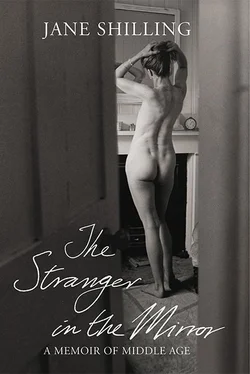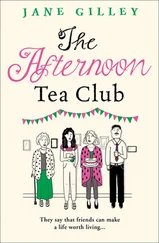If I had saved all the money it had cost to buy and keep my mare, I would have had a calamity fund sufficient to keep us going for about six months. How to balance what she had given me – the passport into a new world and all that I had learned there about her, about myself, and about the landscape into which she had taken me – against what I had lost by keeping her: the tormenting anxiety that now assailed me, the real prospect that we would have to relinquish everything I had worked for and begin again? The accounting was too hard, and in any case pointless. I gave it up.
But I could not shake off the vertigo of not having an income; the feeling of plunging dread each time I handed over my debit card to pay the grocery bill. Reading the letters of the novelist Penelope Fitzgerald, who struggled for much of her life with money, I recognised the panicky disorder of tiny, mad economies that I had begun to adopt. Fitzgerald saved Green Shield Stamps, mended her sandals with plastic wood from Woolworths (‘unfortunately they only had “antique walnut”…’) and resorted to dyeing her hair with a used tea bag (‘but it did not make much difference’).
I took to rinsing Alexander’s discarded drinks bottles and refilling them with squash for the next day’s packed lunch. Root vegetables began to feature prominently in our diet; I became ingenious with mince, experimented with home-made yoghurt. As a small girl I had been taught by my grandmother to darn. Now, after a gap of forty-odd years, I resurrected this useful skill. When my linen bed sheets (bought from a fashionable supplier of bed linen at what now seemed ludicrous expense a shockingly short time before) grew threadbare and began to disintegrate, I turned the sides to middle as I had seen my grandmother do with her own worn-out sheets. It was fiddly work, and the result rather lumpy to sleep on, but it gave me the illusion of doing something.
My son put up with most of this quite stoically. He liked some of the home cooking (the cakes, not the root vegetables), and the fact that the piles of darning meant I would sometimes sit through Match of the Day with him, stitching, when before I had always claimed to be too busy. When I said that we couldn’t afford a summer holiday, he said furiously, ‘ Why can’t you be successful?’ but that was his only reproach to me.
He was to take his GCSEs soon after I lost my job. His grades were borderline and I was afraid our trouble would distract him from his work. On the day the results came out we arranged to meet in a café near his school. Privately, I had already resigned myself to bad news. I was trying to train myself not to care about anything that didn’t involve mortal illness or actual homelessness. He arrived looking pink and flustered, holding a scrap of paper. He had got into the Sixth Form quite handsomely, with marks to spare. I felt as though we’d stolen something back from fate; caught hold of something useful and solid in the slithering freefall of our circumstances.
It was the solidity that I missed; the fat chink of money in exchange for goods; the swift progression from desire to ownership of a book or a picture glimpsed on a market stall; the ability to give in to a generous impulse to buy a present or go out for a treat, to lunch or a film. Now we breathed a thin air of renunciation; wrung every drop of value out of each coin of the week’s budget.
About the house, things were becoming frayed and shabby: the matting on the stairs was trodden into treacherous holes that caught at our feet as we went up and down; the cane bottoms of the dining-room chairs had worn through and hung down in a bristle of loose ends on which we perched precariously. A triangular breach appeared in the lining paper of the stairwell, and behind it a disturbing, dusty looseness where the plaster had rotted. A trickle of plaster dust and clots of ancient disintegrating horsehair bled constantly from the hole, as though the house were haemorrhaging. Alexander complained of something sharp in his bed and when I looked I saw that the coil of a metal spring had worked its way through the wadding and was sticking out. I turned the mattress over and promised that we would buy a new one as soon as I could afford it, whenever that might be.
With a synchronicity too perfect not to seem malevolent, all the appliances in the house began to break down: the oven gave a faint pop and died, halfway through cooking a cake. The washing machine began to emit grinding sounds of struggle during the spin cycle until, with a grievous clank and a terrible expiring shudder it, too, gave up. Sick at heart, I replaced them both on credit. I’d never worried about things being shabby before, but that was in the days when I knew the trick of how to turn words into money – like the girl in the fairy tale, spinning straw into gold, I used to think – and it seemed that as long as the words didn’t run out, neither would the money. But now the knack had gone and the fate maliciously predicted for me by my friend, of becoming a mad old woman living in a decaying house full of ruined bibelots, seemed all too plausible.
It was late December. I had been unemployed for six months. Despite everything, I said, we will have a lovely Christmas. Better things will come in the New Year. We bought a huge, bushy Christmas tree in Blackheath and wrestled it into the drawing room. I went to an Advent service at the Naval College chapel and sang carols of peace and renewal. It was very cold, with a biting north-easterly wind, but clear and sunny. Indoors it was warm and the smell of pine resin and baking filled the house. But on the night before Christmas Eve, as I stood in the shower, the water ran cold. The boiler had stopped working. In the morning an engineer came and said that it was too old to repair. There was nothing to be done. We would have to wait until the New Year for a new one to be installed. It would cost a couple of thousand pounds. In the meantime we had no heat, and no hot water.
It was freezing indoors and out. The bathroom was so cold that it was almost unbearable to get undressed for long enough to wash in a kettleful of boiled water. I thought of my grandmother’s stories of being sewn into her vest for the winter as a child. In bed at night, with two jumpers over my nightgown, clutching a hot-water bottle and the cat for warmth, I couldn’t sleep for cold. Yet I had grown up in a house without central heating, warmed only by open coal fires, with hot water intermittently supplied by a sullen and filthy coke-fired furnace. I remembered waking to find a hard glittering tracery of icy leaves and flowers and star shapes etched on the inside of my bedroom windows. How odd, I thought now, that I should remember only the fantastical prettiness of the ice patterns, and not the savage chill that must have accompanied them.
The radio, fascinated by the unaccustomed freeze, broadcast programmes about frost fairs on the Thames, the reminiscences of Seamus Heaney of washing in biting cold water drawn from the outside pump, packed with straw to keep it from freezing solid. They had a frosty glamour, these tales of chilly revelry, that seemed absent from our present squalid experience. The refrigerator, presumably in a spirit of sympathy, stopped working. Not that it mattered, since we could keep our food cold simply by placing it on the gelid stone floor by the back door. ‘Inside the fridge is the only warm place in the house,’ I said to friends as we exchanged bulletins on our Christmases, trying as usual to control the uncontrollable messiness of life by turning it into a story.
What I can’t get over, I said to my friend Prudence Entwhistle, who was dividing her Christmas in orderly fashion between family, friends and her elegant flat among the silent turrets and quadrangles of her deserted school, is the random spitefulness of all this. The lost job or the expensive series of domestic disasters, surely? Not both at the same time. Not that I expect to be exempt from bad things, you know? But I wish they’d form an orderly queue…
Читать дальше












